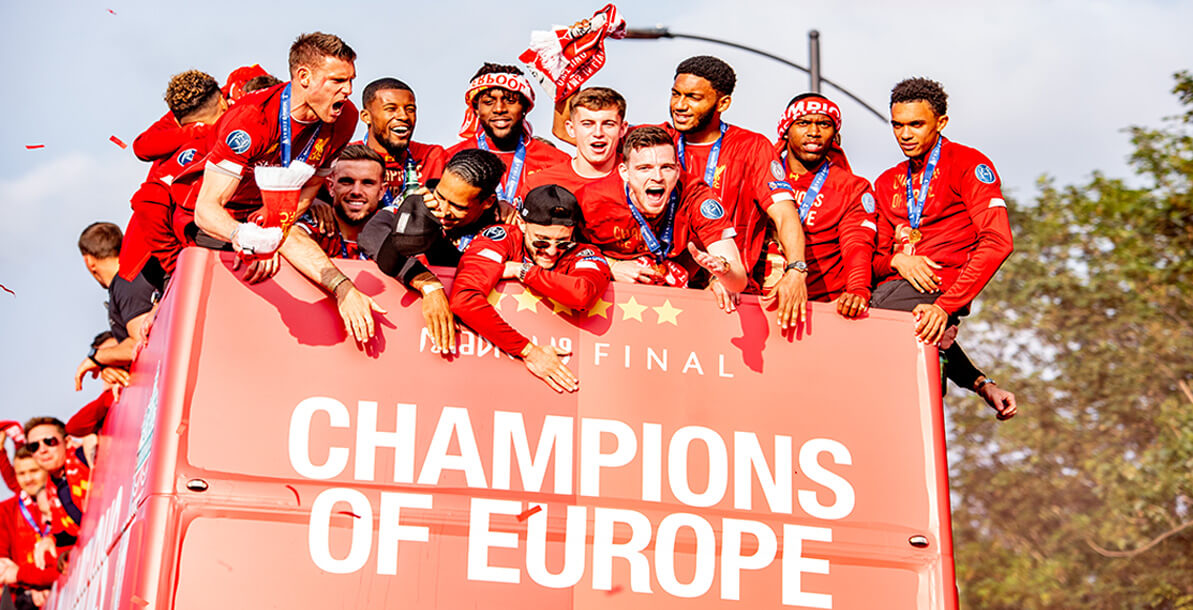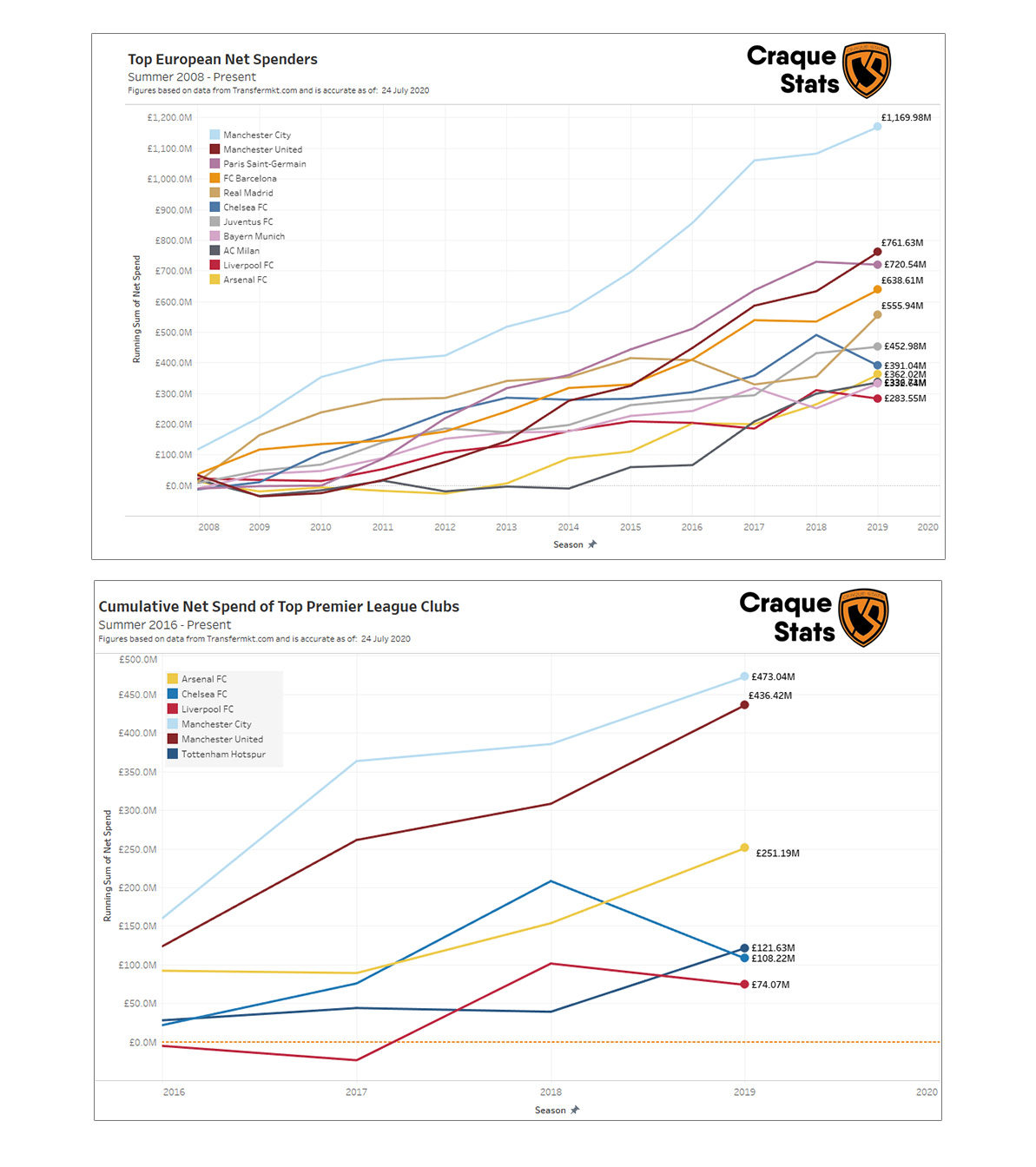Topics: Recruitment, Talent Advisory
Best Hiring Practices You can Learn from Liverpool FC Recruitment Model
Posted on July 30, 2020
Written By
Aron Vaidya

Introduction
To this day, most businesses still undermine the value of recruitment, training, and culture in their pursuit of achieving sustainable success. Could proper recruitment and training help SMEs with constrained liquidity achieve success competing against large corporations with abundant capital at their disposal?
Look no further than Liverpool Football Club! The success they’ve attained within the past 14 months – Premier League 19/20 Champions, Champions League 18/19 Winners, UEFA Super Cup winners and Club World Cup winners – is a result of years and years of hard work. Data-driven recruitment, extensive coaching, and reinvigoration of club culture, fuelled by manager Jurgen Klopp, has played a crucial role in bringing LFC back to its perch.
Sailing through Choppy Waters
It has been a long interminable wait; a 30-year wait to be precise for the scousers worldwide to celebrate the league title. And there have been loads of ups and downs over the past three decades. But one particularly dark moment that nearly shattered the club was when it was on the brink of administration in 2010 under the reign of then-owners Tom Hicks and George Gillett.
The club was subsequently acquired by Boston-based Fenway Sports Group (FSG) for £300 million, efforts spearheaded by John Henry and Tom Werner. Their on and off-pitch success can be highlighted by the fact that LFC was valued at £1.7 billion as per a Forbes report in 2019. However, it hasn’t been smooth sailing to success, they’ve had to pass through choppy waters, undergoing a steep learning curve in the process.
FSG, even before LFC acquisition, were aligned with ‘Moneyball” approach to recruitment, implementing it rather successfully in their baseball team, Boston Red Sox. Moneyball approach refers to an analytical, evidence-based, data-driven, sabermetrics method that helps evaluate past performances and gauge future performances, thereby driving recruitment decisions to assemble a high-performing baseball team within a limited budget. And they were keen on translating the success achieved through this method from one sport to another.
Note that this methodology may as well work for non-sporting businesses as we’re witnessing a significant rise in universal adaptation of data-driven talent acquisition process. For this theory to work, everyone, from the leadership to the managers, players and the back-room staff need to be aligned. And that’s where LFC failed in their initial tenure.
Hiring the managers not aligned with the analytical team of talent acquisition setup, setting transfer strategy (player recruitment strategy) not suited to the managers’ game plan or vision, a discrepancy between owners and managers, grave oversights in long-term recruitment tactics led to numerous mistakes, expensive mistakes.
Finally, Recruitment Done Right!
Klopp Revolution
A first step in the right direction! In came Jurgen Klopp, replacing Brendan Rodgers as LFC manager after the disastrous start to the 2014/15 season. Klopp’s tactical vision was clear and unlike his predecessors, he was receptive to the team of specialists around him, be it sporting director Michael Edwards who guides him on transfers or director of research Ian Graham who heads the data department.
When confronted with the notion that he might find it difficult operating in the FSG structure, he dismissed it saying, “For me, it is enough to have the first and the last word, the middle we can discuss. I am not a genius. I don’t know more than the rest of the world. I need other people to get perfect information.”

Acknowledging the contribution and need of specialists around him, he even went on to develop his support staff acquiring the head of fitness and conditioning – Andreas Kornmayer, the head of nutrition – Mona Nemmer, and a throw-in coach – Thomas Grønnemark. Klopp’s willingness to work with others, deferring specific aspects of the big game to the experts around him has contributed to the club’s success – It’s an excellent lesson in management.
Another factor that has contributed to LFC success is the culture that Klopp instilled throughout the club. A sense of togetherness has prevailed around the club since its inception in 1892, pushed on by the legacy of Bill Shankly, Bob Paisley and Sir Kenny Daglish, resonated out loud by the LFC anthem “You’ll Never Walk Alone”. In Klopp, the club found a manager who understood and embraced its values and beliefs. In terms of recruitment, we’d say he was a perfect culture-fit for the Liverpool Football Club. A match made in heaven!
He further instilled these values in his players, motivating them to fight through the most challenging situations, driving them to success with hard work and ‘never give up’ attitude. He calls them his “Mentality Giants” – for context go watch the LFC vs Barcelona Champions League game of 2019, and you’ll know what we are talking about. His first message to the LFC fans was to turn from doubters to believers, and that’s precisely what he has achieved in the last four years.
In Klopp, the club found a manager who understood and embraced its values and beliefs. In terms of recruitment, we’d say he was a perfect culture-fit for the Liverpool Football Club. A match made in heaven!
Finally, another aspect that is most important, yet undervalued, in any business is training. The desire to go on and ‘never give up’ attitude is there, but the physicality and mentality to do so are gained and maintained through necessary coaching. While cash-rich clubs had the resources to buy new players with ease to improve themselves, Klopp improved the performance of his current crop of players, often devalued even by their own fans in the past, through smart man-management and coaching.
Improving players such as Henderson and Gomez, grooming academy graduate Trent Alexander Arnold to become a world-beater is a result of effective coaching and leveraging their strengths for the team. Identifying the strengths and weaknesses of an individual and leveraging them for the benefit of the group is a sign of a good manager, whether it’s for a football club or any other organisation.
Klopp’s willingness to work with others, deferring specific aspects of the big game to the experts around him has contributed to the club’s success – It’s an excellent lesson in management.
That’s not to say that he never dipped into the transfer market to buy new players! He did, and how well he did!
Recruiting Right Players
Billy Beane, the founding father of the ‘Moneyball’ concept, said in a Blood Red LFC podcast that there are numerous assumptions revolving around Moneyball tactic. Some take it as a tool for objective analysis to aid decision making, and some think it is about identifying market inefficiencies, while some believe it’s about buying best while spending as little as possible. And this couldn’t be further from the truth. He also added that it’s about finding the undervalued assets (not necessarily cheap) in the current market, with anticipation that the value of these assets will increase over a period.
At LFC, one example to consider is Mohammad Salah. He was purchased for £40 million, which was deemed expensive and risky from a general standpoint. Yet, his value at present is far more than what was paid for him a couple of years back. The same point hold for purchase of expensive assets such as Virgil Van Dijk, Allison, Sadio Mane and Fabinho. That is the advantage of the collaborative data-driven recruitment practice.

Coupled with the approach mentioned above, a player was purchased only if he was deemed a right fit for the club – right fit in terms of cultural-fit, work ethics, and necessary skill sets. Klopp, in an interview, once said, “We believe that if someone needs to be convinced by money, then at one point – when you really need character – you will not get it.” That’s how he built his team of players peppered with the right character, values, and ethics. This recruitment practice tells us that the most expensive candidates aren’t necessarily the best candidates for your organisation. Take note that this team wasn’t built overnight. It took years of patience, trust, hard work, and smart work, and LFC is reaping the rewards now.
Overcoming Overwhelming Competition
A couple of years back, no one expected LFC to perform consistently at such high levels and win major European trophies. But they surpassed all expectations and won everything there is to win while overcoming competition from cash-rich clubs such as Manchester City, Manchester United, Barcelona, and Paris Saint-Germain (PSG).

The above graphs designed by Craque Stats give context to the level of competition that Liverpool FC has had to overcome to achieve success.
These numbers tell us how one cash-strapped entity with data-driven recruitment strategies and patient, collaborative approach and long-term planning towards a project can compete against cash-rich entities. The Davids of the world can beat the Goliaths of the world!
Concluding Thoughts
LFC has incorporated data analysis into their decision-making process, whether it’s corporate or tactical. The club’s success has made the number-crunching acceptable in the global football landscape. It is now deemed a model to be followed, ask AC Milan or Leeds United. The recruitment approach has served the club well in the transfer market, attaining immense success in buying and selling.
LFC has come a long way over the past decade, from getting close to administration because of poor management to winning Premier League and Champions League trophies, breaking several records in the process. LFC’s rise to dominance, getting back to their perch again is a grand success story businesses worldwide could learn from.
You’ll Never Walk Alone!
Key Takeaways from this piece
- Data-driven recruitment approach has become a necessity rather than a luxury.
- The most expensive candidate isn’t always the right candidate; You want him to be culture-fit and in alignment with your organisational values and ethics.
- Upskilling and cross-skilling your current team through training is an excellent method to boost team performance and morale.
- Trust the experts around you. For instance, if you find it challenging to manage the full-cycle recruitment process yourself, you can always work with third-party recruitment process outsourcing experts to streamline and manage your talent acquisition process.
Originally published Jul 30, 2020 12:07:34, updated Nov 08 2023
Topics: Recruitment, Talent Advisory








